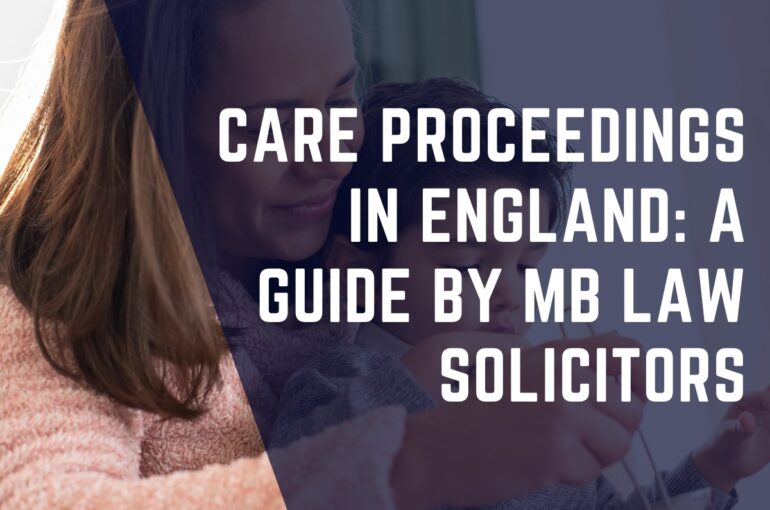Care Proceedings in England: A Guide by MB Law Solicitors
Care proceedings are legal actions initiated by local authorities when they believe a child is at risk of significant harm. These proceedings are often distressing for families, as they may result in a child being removed from their home. At MB Law Solicitors, we provide expert legal support to parents and guardians, ensuring they understand their rights and options throughout the process.
What Are Care Proceedings?
Care proceedings occur when Children’s Services believe a child is suffering or is likely to suffer harm due to neglect, abuse, or other safeguarding concerns. If social workers determine that a child’s welfare is at risk, they may apply to the Family Court for an order that gives the local authority certain powers over the child’s care.
Common Reasons for Care Proceedings:
✔ Neglect – Failing to meet a child’s basic needs (e.g., food, clothing, supervision).
✔ Physical abuse – Non-accidental harm to a child.
✔ Emotional abuse – Harm caused by ongoing criticism, rejection, or exposure to domestic abuse.
✔ Sexual abuse – Exploitation, assault, or exposure to inappropriate material.
✔ Substance misuse – When a parent’s drug or alcohol use affects their ability to care for their child.
✔ Mental health concerns – If a parent’s mental health condition puts a child at risk.
The Care Proceedings Process
Care proceedings typically follow a structured legal process:
1️ Pre-Proceedings (Public Law Outline – PLO)
Before applying to court, the local authority must invite parents to a PLO Meeting to discuss concerns and explore solutions. This is a chance for parents to work with social services to improve the situation and potentially avoid court action.
2️ Applying for a Care Order
If the concerns persist, the local authority applies to the Family Court for a Care Order or Supervision Order. An Interim Care Order may be granted, allowing social services to make decisions about the child’s immediate welfare.
3️ Interim Hearings
The court may decide on temporary arrangements, including:
✔ Placing the child in foster care or with another family member.
✔ Allowing the child to stay with parents under strict conditions.
4️ Assessments & Evidence Gathering
The court gathers evidence from professionals, including:
✔ Social workers
✔ Medical and psychological experts
✔ Teachers or childcare providers
✔ Family members and guardians
5️ The Final Hearing
After a 26-week process (except in complex cases), the court makes a final decision. Possible outcomes include:
✔ No Order – If risks are resolved, the child stays with parents.
✔ Supervision Order – The child stays at home with local authority oversight.
✔ Care Order – The child is placed into foster care or with a relative.
✔ Placement Order – The child is placed for adoption.
Your Rights as a Parent
Parents facing care proceedings have several important legal rights, including:
✅ Legal Representation – Parents are entitled to free Legal Aid, ensuring they have a solicitor to represent them.
✅ The Right to be Heard – Parents can present evidence, call witnesses, and challenge the local authority’s claims.
✅ The Right to Family Placement – If a child cannot stay at home, relatives can be considered for their care.
✅ The Right to Appeal – If a decision is unfair, parents can challenge it through legal means.
How MB Law Solicitors Can Help
At MB Law Solicitors, we provide expert guidance and representation in care proceedings, ensuring your voice is heard. We offer:
✔ Urgent Legal Representation – Our team acts quickly to protect your rights.
✔ Support During PLO Meetings – Helping parents negotiate with social services before court action.
✔ Representation in Court – Presenting strong legal arguments to keep families together.
✔ Appeals & Challenges – If a decision is unfair, we can help you appeal.



Leave a Reply